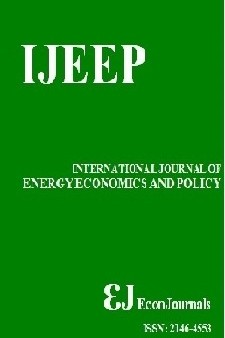Relationships among CO2 Emissions, Economic Growth and Foreign Direct Investment and the Environmental Kuznets Curve Hypothesis in Turkey
Relationships among CO2 Emissions, Economic Growth and Foreign Direct Investment and the Environmental Kuznets Curve Hypothesis in Turkey
CO2 Emission, Economic Growth, Environmental Kuznets Curve Hypothesis, Granger Causality, Johansen Cointeration Impulse-Response,
- Başlangıç: 2011
- Yayıncı: İlhan ÖZTÜRK
Investigating Factors Affecting CO2 Emissions in Malaysian Road Transport Sector
Siti İndati MUSTAPA, Hussain Ali BEKHET
Nezir KÖSE, Sabit BAİMAGANBETOV
Examining Relationship between Electricity Consumption and its Major Determinants in Pakistan
Mudassir ZAMAN, Farzana SHAHEEN, Azad HAİDER, Sadia QAMAR
The Effect of Stock, Government Policy, and Monopoly on Asymmetric Price Transmission in Thailand
Prasarn PATANAKORN, Pongsarn PORNCHAİWİSETGUL
Miloud LACHEHEB, Abdul Samad Abdul RAHİM, Abdalla SİRAG
Ali ACARAVCI, Sinan ERDOGAN, Guray AKALIN
George Nikiforos BOTZORİS, Athanasios T. GALANİS, Vassilios A. PROFİLLİDİS, Nikolaos E. ELİOU
